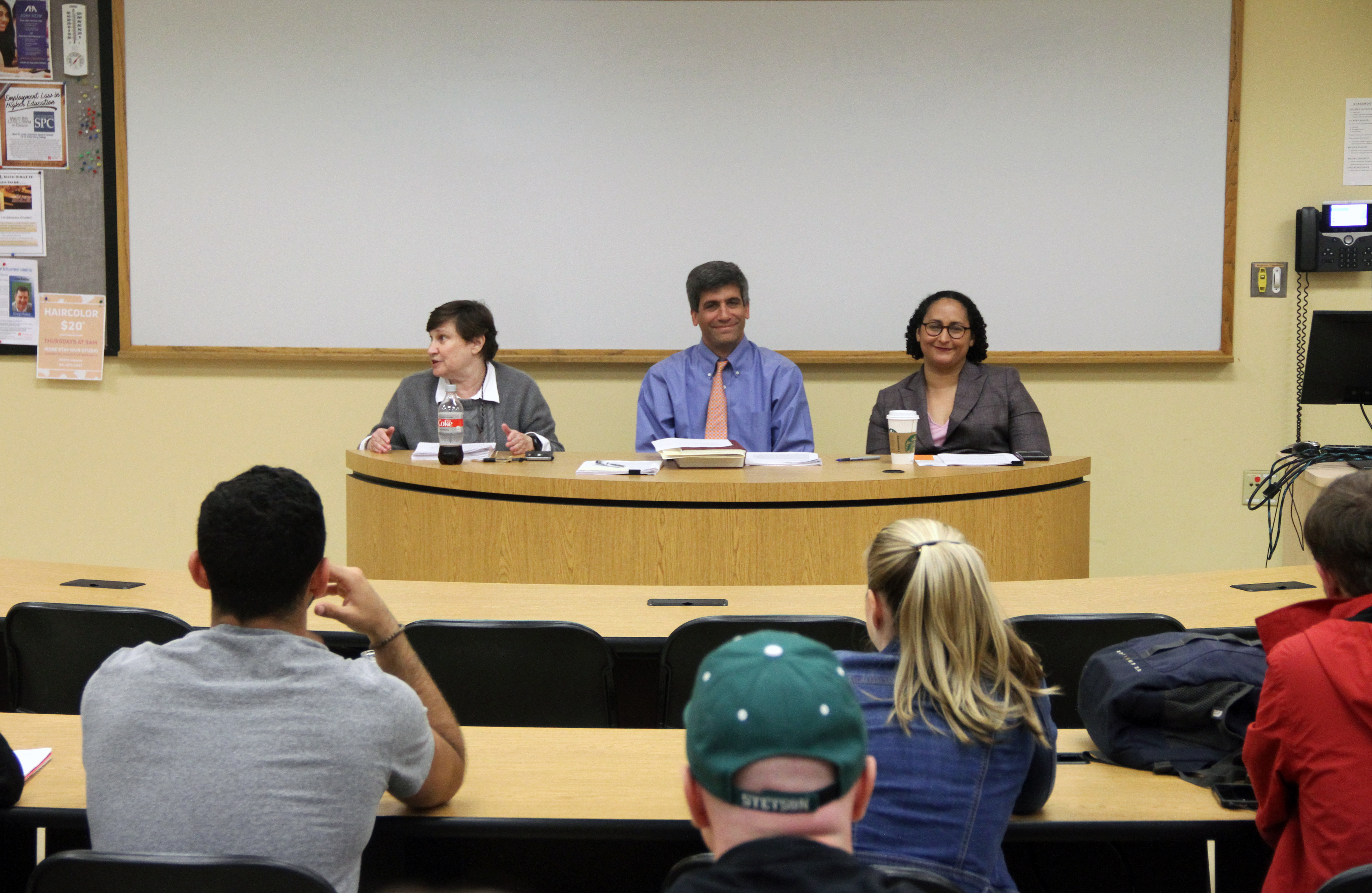Panel discusses Mueller Investigation

(L-R:) Professor Ellen Podgor, Professor Louis Virelli and Professor Ciara Torres-Spelliscy led a panel on the Mueller investigation. Photo by Merve Ozcan.
By Bianca Lopez
On March 20, a panel of three Stetson Law professors – Professor Ellen Podgor, Professor Louis Virelli, and Professor Ciara Torres-Spelliscy – spoke to students about Robert Mueller’s investigation into Russian influence of the 2016 election of President Donald Trump. The event was hosted by the American Constitution Society, the Federalist Society, and Stetson Democrats.
Professor Podgor, due to her background teaching white collar crime, discussed the criminal procedure followed in this investigation. Professor Virelli, a constitutional law professor, covered Paul Manafort’s lawsuit against Mueller and examined the constitutional questions brought up by the investigation. Professor Torres-Spelliscy, who teaches election law, spoke on the illegality of Russia’s connection to the 2016 election.
“Since Special Counsel Mueller’s investigation is about an election, discussing possible election law violations makes sense,” Professor Torres-Spelliscy said. “Interestingly, while the current Supreme Court has largely been hostile to campaign finance regulations, what is fully intact are the laws that bar foreign individuals from spending money in American elections. The Court agrees that keeping foreigners out of U.S. elections is constitutional.”
After each professor delved into their respective topics, the event hosts opened the floor to questions from the student audience.
“I have had several people come up to me since telling me it was an awesome event and they learned a lot, which is great,” said Kate Welch, student secretary of the American Constitution Society. “I think it was important for students to understand that this special investigation is a big deal, backed up by black letter law giving Mueller subpoena power and the right to look further into anything that he feels is relevant to the issue.”
Post date: March 23, 2018
Media contact: Kate Bradshaw
[email protected] | 727-430-1580